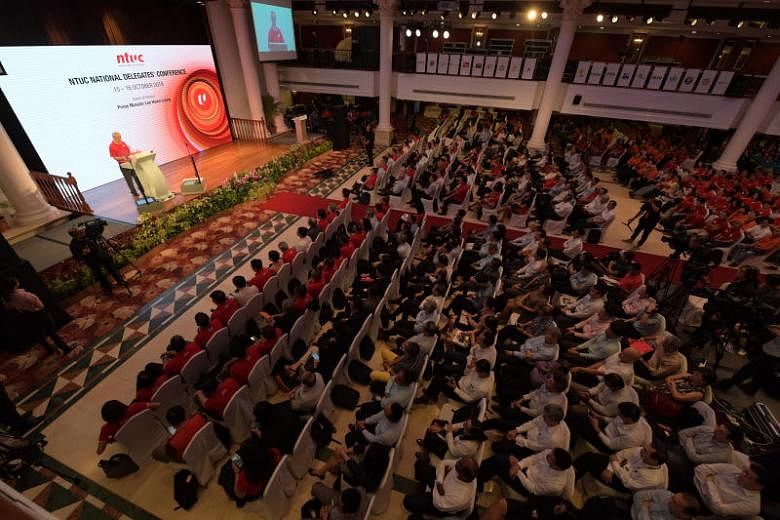Fifty years ago, the labour movement and the People's Action Party (PAP) forged a new social compact that laid the foundations for tripartism in Singapore.
Prime Minister Lee Hsien Loong set out this history in a speech at the NTUC National Delegates' Conference at Orchid Country Club yesterday, highlighting how the unions came to partner the PAP Government in Singapore's development.
Before Singapore became independent, the PAP had already made common cause with the unions, PM Lee said. Later on, the non-communists formed the National Trades Union Congress (NTUC) and stood with the PAP against the pro-communists.
In 1967, the British announced that they would withdraw all troops east of the Suez. This was a daunting prospect for the newly independent Singapore, which would then face the loss of jobs and economic prospects.
In 1969, at the NTUC's Modernisation Seminar, PAP leaders spoke to unionists and argued that unions had to take a broader perspective on workers' interests.
The role of unions should not be restricted to bargaining for short-term wage increases or improving job security, they said. Instead, unions should be geared towards the more holistic goal of helping workers achieve a better standard of living.
"It was a very challenging agenda. But by the end of the seminar, a new compact had been forged between the leaderships on both sides - between the political leaders and the union leaders," PM Lee said.
He added: "The NTUC was no longer just an institution for collective bargaining. It saw itself as a partner in Singapore's economic and social transformation."
As a response, the NTUC expanded into the social sphere, setting up cooperatives such as Income and FairPrice to provide services such as insurance and affordable groceries to workers.
In his speech, PM Lee highlighted economic downturns - including the 1997 Asian financial crisis and 2008 global financial crisis - as instances when tripartite relations were severely tested.
Each time, the Government had to take "difficult and painful decisions" such as cutting Central Provident Fund rates.
"Harder still, ministers had to convince union leaders that these steps were unavoidable," PM Lee said.
"Hardest of all, PAP and union leaders then had to persuade Singaporeans and workers to accept the bitter medicine." It was through these crises that younger leaders were battle-tested and earned credibility and trust, he added.
"And so, we renewed the close bonds between the PAP and NTUC from the first generation into succeeding generations," he said, adding that these bonds must be sustained and strengthened as Singapore sails once again into uncharted waters.


